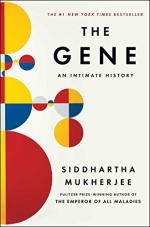|
This section contains 709 words (approx. 2 pages at 400 words per page) |

|
Summary
In 1883 Francis Galton coined the term "eugenics" to define his idea and goal of "improving [genetic] stock" (64). Galton attempted to study human heredity by "measuring variation in humans" and focused on external attributes as well as features such as intelligence, though his methods were far from scientific, particularly by today's standards. Though he coined the phrase "nature versus nurture" Galton remained attached to the idea that accomplishment and eminence is hereditary, not a result of privilege and opportunity.
Galton's theories were soon challenged by Mendel's advocate William Bateson. Other scientists who attempted to prove Galton's theories were unable to do so; "the data they found could only be explained by Mendelian inheritance" (69). Around the same time, these particles of hereditary information Mendel had identified were given their final name: genes.
Galton remained focused on "whether human inheritance could be manipulated for human...
(read more from the Eugenics (Part One) Summary)
|
This section contains 709 words (approx. 2 pages at 400 words per page) |

|




